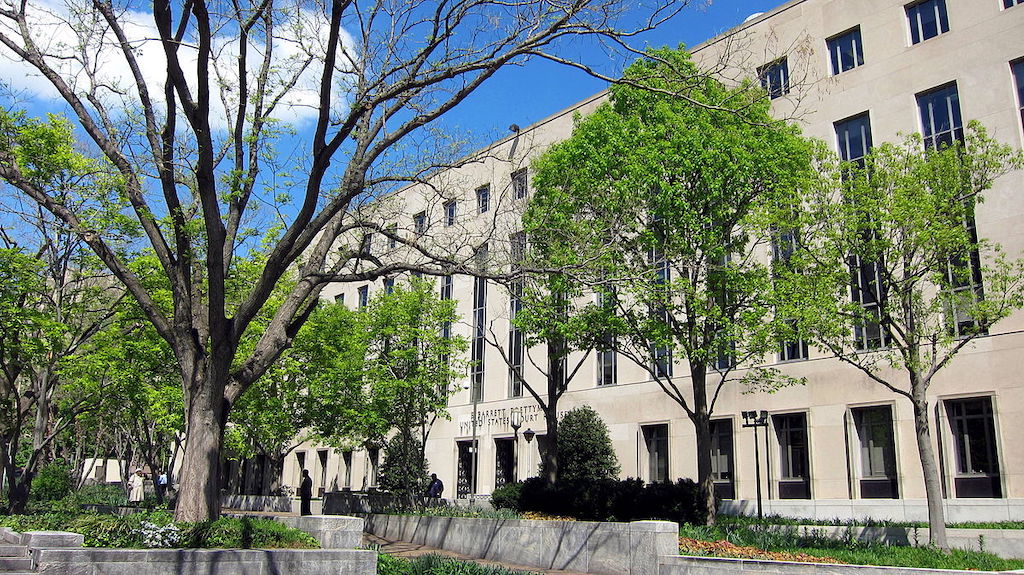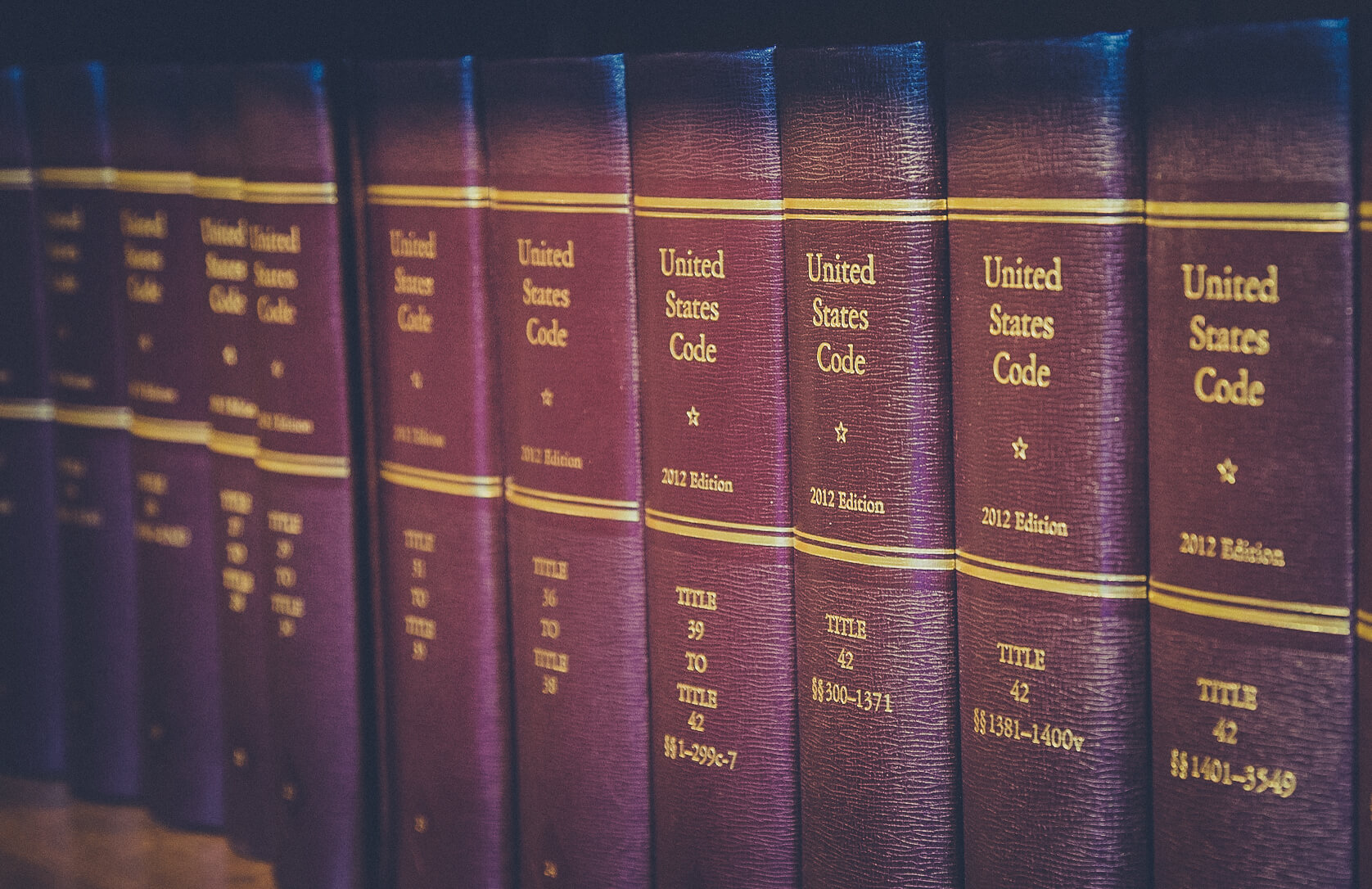Oral Argument Summary: Trump v. Committee on Oversight and Reform
On May 14, attorneys representing President Trump and the House Committee on Oversight and Reform argued before Judge Amit Mehta of the U.S. District Court for the District of Columbia in Trump v. Committee on Oversight and Reform. The case is unprecedented.

Published by The Lawfare Institute
in Cooperation With

On May 14, attorneys representing President Trump and the House Committee on Oversight and Reform argued before Judge Amit Mehta of the U.S. District Court for the District of Columbia in Trump v. Committee on Oversight and Reform. The case is unprecedented. The sitting president of the United States and his businesses are suing a congressional committee to try to prevent that committee from obtaining documents and information from a third party—Mazars USA, Trump’s longtime accounting firm, which the committee served with a subpoena for 10 years of Trump’s financial documents.
This case is the first time a federal judge has heard Trump’s across-the-board legal argument for blocking congressional investigations in multiple areas. As I wrote on Lawfare in March, the Trump White House has justified its refusal to comply with requests for information and documents from multiple House committees by arguing that the committees have no legitimate legislative purpose in conducting those investigations. How Mehta rules in this case could affect both the speed at which similar cases are considered, and on what substantive legal grounds.
More broadly, the suit showcases the broader issue of how the constitutional system is reacting to Trump’s aggressive assertions of presidential power, in this case against the legislative branch. From the steps of the courthouse where the hearing was held, one can look to the left and see the Capitol dome. To the right, just a few blocks down Pennsylvania Avenue, sits the Trump International Hotel, a plaintiff in the suit. And just a few blocks beyond that is the White House.
The substantive issue in the case concerns whether Congress has the right to obtain financial information about the president from a third party as part of a committee investigation. Representing Trump, William Consovoy argued that there is no conceivable constitutional basis on which the information could be provided to the committee, because there is no valid legislative purpose for which the information could be needed. The hearing was in all ways calm, measured and friendly, but Mehta was openly skeptical of such arguments.
On process, Mehta stated his view that the factual and legal record was fully developed and that there was no need for further hearings, briefings or other processes in the case, and that he intended to forego unnecessary steps in the usual litigation process. He indicated, however, that he would leave the record open until May 18 to allow the parties to provide further documents to the court and would rule promptly thereafter. Consovoy made clear he would appeal an adverse decision and asked the judge to stay the Mazars subpoena to allow for such an appeal.
****
Judge Mehta opens the hearing by indicating that, contrary to certain assumptions and statements by the media, he will not be ruling from the bench on Tuesday. He emphasizes that no judge would make such a hasty decision in issues as serious as these, and that he wants the parties to have every opportunity to be heard. But he also speaks about the necessity for expeditious treatment in the case of a congressional investigation, referencing the Supreme Court’s opinion in Eastland v. U.S. Servicemen’s Fund and the U.S. Court of Appeals for the D.C. Circuit’s decision in United States v. AT&T, and indicates he will be issuing his opinion promptly.
The judge starts with a discussion of the merits of the case and invites Consovoy to make his arguments. Consovoy argues that the committee has no legitimate legislative purpose in subpoenaing Trump’s financial records from his accountant, so the judge should deem the subpoena invalid and unenforceable. He contends that the committee’s actions amounted to an attempt to engage in a law enforcement action, which is not the province of Congress.
Mehta then asks Consovoy to address each of the four justifications for the subpoena outlined in Chairman Elijah Cummings’s April 12 memo to the committee members.
The first is the committee’s desire to ascertain whether Trump has accurately reported his finances to the Office of Government Ethics and other federal entities as part of mandatory financial disclosure statutes. Consovoy argues that this justification is invalid because there is no legislation that would pass muster that could be associated with the request. Mehta asks if it is Consovoy’s view that a bill must be identified for the committee to request such information, noting that the Supreme Court has found the opposite to be the case. In response, Consovoy argues that there is no valid legislative purpose that the Congress could pursue that would require the information sought—the president is not an agency created and regulated by Congress but, rather, a constitutional actor who can have no additional qualifications for office (such as accurately reporting finances) put upon him.
So, Mehta asks, is Consovoy arguing Congress could not investigate even if the president is engaging in corruption? Correct, says Consovoy. Such an investigation would not be proper because it would be an exercise of not a legislative power but a law enforcement power—an investigation conducted for the investigation’s sake, and not in furtherance of a legislative purpose. Mehta asks if it is Consovoy’s view that the court is required to undertake a constitutional analysis of theoretical future legislation by Congress, and expresses intense skepticism about that idea.
Mehta then turns to the Emoluments Clause of the Constitution—the second part of Cummings’s explanation of the investigation for which the subpoena was issued. Why is that not a proper subject of Congress’s investigation, given Congress’s express role in approving such emoluments? Consovoy responds that the president’s private financial affairs are beyond the scope of the Emoluments Clause, that such pursuit of information about compliance with the Emoluments Clause is also a law enforcement function, and that Congress cannot engage in a corruption investigation of the president. Mehta is skeptical, pointing out that only Congress has the authority to approve emoluments under the Constitution. He also asks whether Consovoy would agree that the Whitewater and Watergate investigations by Congress—which probed potential presidential corruption—were beyond the legislature’s remit. Consovoy does not answer that question but instead points out that Michael Cohen’s testimony—which prompted the committee’s request for the documents—made no mention of the Emoluments Clause.
Next, Mehta asks about Cummings’s third point, regarding Congress’s ability to determine whether the president’s financial conflicts of interest may be impairing his ability to make impartial policy decisions. Consovoy repeats that there is no valid piece of legislation Congress could produce on the issue that would withstand constitutional scrutiny. When Mehta inquires as to why Congress could not amend the relevant ethics statutes, Consovoy cites a 1972 Office of Legal Counsel analysis by then-Deputy Attorney General Laurence Silberman addressing then-extant ethical laws that impacted Vice President Nelson Rockefeller’s business interests. Mehta counters by indicating that he would have to presume a law by Congress to be constitutional until challenged, and that he will have to leave the constitutionality of a future potential law for another day.
Mehta asks Consovoy for clarity on the most recent case in which a court found a congressional subpoena invalid for overstepping the bounds of constitutional authority—was it in 1880, in Kilbourn v. Thompson? Consovoy seeks to invoke a 1957 case, Watkins v. United States, but Mehta quickly points out that Watkins was a contempt case. Mehta indicates his view of Watkins as standing for the proposition that, if the judge finds the investigation to be facially valid, then the court cannot look at Congress’s motives in issuing the subpoena. If the investigation is facially acceptable, then there is nothing more for the court to do. He also indicates skepticism about the court’s place in making a decision about what role the subpoenaed documents play in the legislative function. Consovoy acknowledges that the court wouldn’t want to get “into the weeds” of legislation but argues that the judge can’t ignore that the investigation is really a law enforcement matter not properly addressed by Congress.
Turning to the procedural issues, Mehta asks about Consovoy’s view of the propriety of consolidation of motions and procedures to speed the case along. Consovoy indicates that it would be proper to move to a discovery process, but Mehta responds that the documents Consovoy wants from the committee won’t come through discovery. As to what discovery he is looking for, Consovoy indicates he is interested in obtaining a memorandum of understanding between the oversight committee and the intelligence and financial services panels—which, he says, could support the argument that Democrats are pursuing Trump from a law enforcement rather than legislative action. (It’s not clear what this memorandum is or why Consovoy thinks it is relevant to the proceedings.) He also suggests that there are documents in possession of the ranking member that he is interested in. Mehta questions whether a document in possession of the minority is something the court should ever consider.
Consovoy indicates that there could be more legal arguments to be made, but Mehta is skeptical—he suggests that he believes the issues are all legal rather than factual ones, and that he has already read all the relevant cases. For this reason, the judge says, there is no reason for him not to proceed swiftly in reaching a judgment. He concludes by indicating that he will not be deciding on the constitutionality of potential future legislation, though Consovoy disagrees with this approach.
Mehta then turns to the general counsel for the House of Representatives, Doug Letter. Letter begins by making clear how high he understands the stakes to be: The right way to view Trump’s argument, he says, is that Congress has little constitutional power and is fundamentally a nuisance.
Mehta interrupts to express frustration that there isn’t an official public statement or resolution that clearly demarcates the purpose of the congressional investigation, opening the door to the president’s accusations that Congress is only seeking to harass him. Letter responds that the case of McGrain v. Daugherty stands for the proposition that a congressional committee need give no public reason for an investigation and attendant subpoena to be perfect valid. He also argues that the chairman’s memo to committee members outlining the purposes of the investigation had been made public—and that, in any event, it is entirely sufficient to state the investigation’s purpose in court.
Mehta asks whether Letter believes Congress has an investigative informing function that is separate and apart from Congress’s legislative function. Letter acknowledges such independent power but indicates that he need not rely on it to support the subpoena, because the legislative purposes in this case are obvious. Letter also points to the broadness of the appropriations function as a grounds for broad congressional investigative authority—one can tie almost anything related to government to Congress’s power to appropriate. He says that Congress can investigate without knowing exactly what future legislation will be. And in any event, Congress certainly has the power to investigate the president.
The judge asks whether Letter thinks there are any constitutional constraints on the scope of a congressional committee. How is a court supposed to determine whether what a committee is doing is consistent with the Constitution? Letter says that there are things that likely would fall outside of congressional subpoena power—for example, Terri Schiavo’s life support equipment, and probably a sample of the president’s blood. He also says one can imagine certain information that would be out of scope—for example, a president’s childhood diary.
Mehta again asks what role the court should have in evaluating the relationship between a committee’s information request and a piece of potential legislation. Letter responds that the court’s role is very limited, arguing that there should be a “presumption of regularity” for the congressional request. Mehta specifically asks if the “plainly incompetent” standard in qualified immunity cases is the right standard for the court to use in evaluating congressional action in this case. Letter responds that the question is unnecessary, because the connection to a congressional role is so clear—pointing to the post-Watergate Ethics in Government Act.
Mehta next addresses the final substantive prong of the committee’s investigation—what the relevance is of potential illegal conduct before Trump was in office. Letter responds that Congress has a role in determining whether the president is beholden to foreign governments—for example, foreign governments may know he has engaged in bank fraud and could hold that information over the president in his official decisions.
The judge also asks whether the Speech or Debate Clause of the Constitution is relevant in this case. (The Eastland case reaffirmed the principle that if members of Congress are acting within the legitimate legislative sphere, the Speech or Debate Clause is an absolute bar to interference by the judicial branch because congressional action may not be “questioned in any other Place.”) Letter indicates that Trump cannot sue the committee, which is why the case was restyled with the committee as an “Intervenor-Defendant” rather than a defendant (like Mazars) in the case. Consovoy likewise would not be able to take Cummings’s deposition, Letter argues.
In wrapping up the proceedings, Mehta asks whether Letter will produce the memorandum of understanding Consovoy had expressed interest in. After excusing himself for a few minutes to consult with counsel for the committee, Letter tells Mehta that the memorandum of understanding related to a subpoena of another entity, and not Mazars, but that he will produce the document for review by the court. The judge indicates his belief that it may be a document that Trump’s attorneys should have access to as well.
Mehta also asks whether documents produced by Mazars to the committee would be confidential. Letter indicates that will not necessarily be the case—he won’t pledge to keep such documents secret, as the committee has the power to determine whether to disclose records and to whom. The committee would typically consult with the target of the subpoena in making that decision, Letter says, stating a willingness on the part of the committee to hear Trump’s arguments about confidentiality of the documents.
Following more discussion of the procedural consolidation issue, Mehta concludes by announcing he will leave the record open until May 18 for Letter to produce the memorandum of understanding and for Consovoy to make any further arguments. The hearing concludes with a discussion of whether, if Mehta finds that Trump has no chance of success on the merits, he will issue a stay to allow Trump’s attorney to appeal the case before requiring Mazars to comply with the subpoena. Mehta does not commit one way or the other but does indicate his order will be clear on this point. Letter suggests one possibility—that the subpoena be stayed for a time certain to allow for an appeal.
****
Mehta will likely issue his ruling on the merits of the case fairly soon after May 18. If he rules in favor of Mazars and the committee, Trump’s attorneys will almost certainly appeal the decision—perhaps setting the case on a path to the Supreme Court.





